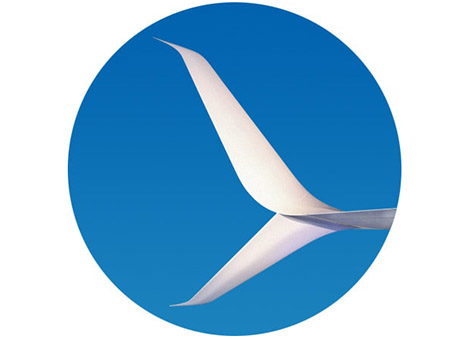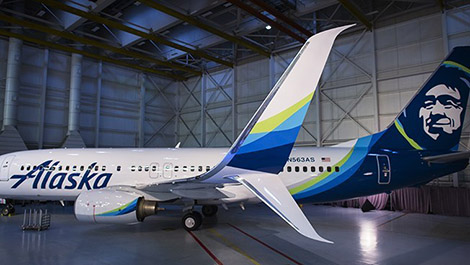
Aviation Partners’ super economical Split Scimitar Winglet
The next time you have a window seat on a flight, check out the very end of the aircraft wing for a guide to how economical your trip is about to be.
The latest design from Aviation Partners Boeing (APB), a Seattle based joint venture between Aviation Partners and Boeing, is redefining the aerodynamics of an aircraft through the reshaping of the wing tip.
Aviation Partners’ Blended Winglets have already demonstrated more than 60 per cent greater effectiveness over similar sized winglets with angular transitions, but now its Split Scimitar Winglet is going a step further, reducing Boeing’s Next-Generation 737 block fuel consumption by an additional 2.2 per cent over the Blended option.

Aircraft with split wing tips can increase their range by two per cent
The drag reduction of the design and corresponding range increase of two per cent or more for long-range missions make the winglets standard issue on all new Boeing Business Jet aircraft, and are already in service on over 1,200 aircraft.
Since launching the Boeing Next-Generation 737 Split Scimitar Winglet program APB has taken orders and options for more than 2,000 systems, and estimates that its products have reduced aircraft fuel consumption worldwide by over 9.1 billion gallons to-date thereby saving over 96 million tons of carbon dioxide emissions.






